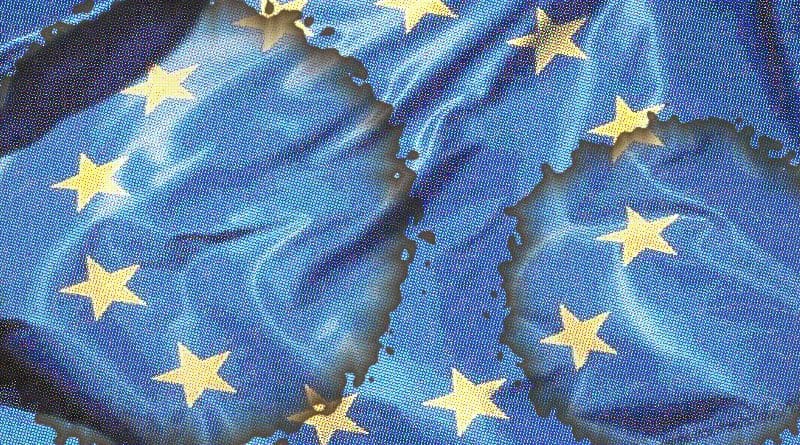Euroskeptics And Nationalists To Have A Louder Voice Within EU – Analysis
The EU’s parliamentary election results illustrate the strength of far-right populist parties and where liberal, pro-EU parties now lie within Europe’s sociopolitical space. The European Parliament represents more than 500 million people in 28 countries and the EU voting results suggest a complicated future for the continent, especially thanks to the Euroskeptics who seek alternative pathways for their respective countries.
Although pro-European parties will still hold a majority in the new European Parliament, there is no doubt a big shift is occurring. To be sure, high voter turnout — for the first time in 20 years — for this particular EU election signals a reflection of European sentiments regarding a number of hot button issues, such as an increasingly divided Europe that is being pulled in a number of different directions. How Europe looks at North Africa is going to continue to be a hot issue. The results suggest that Europeans who seek a liberal outcome are going to have to form new coalitions against the upsurge in populism. EU authority on issues such as immigration and Islamophobia are shifting.
Populist, Euroskeptic parties across Europe saw gains, which is what pro-EU forces had feared. But the various nationalist parties’ differences over issues like migration and attitudes toward Russia could cloud prospects for a united right. In France, Marine Le Pen beat French President Emmanuel Macron’s coalition. Le Pen said the result “confirms the new nationalist-globalist division.” In Italy, the League, led by Deputy Prime Minister Matteo Salvini, defeated other challengers and, in the UK, amid its Brexit mess, Nigel Farage and his new Brexit Party won big.
Importantly, UK voters weren’t initially even supposed to participate in this election, as the country was due to leave the EU by the end of March. But, thanks to the Brexit crisis, Farage moved forward, decimating Prime Minister Theresa May’s Conservative Party. Farage noted that: “Never before in British politics has a new party, launched just six weeks ago, topped the polls in a national election. There’s a huge message here, a massive message here.”
In Hungary, the nationalist Fidesz party of Prime Minister Viktor Orban took over 50 percent of the vote and, in Austria, conservative Chancellor Sebastian Kurz’s Austrian People’s Party won too. Poland’s Euroskeptic Law and Justice Party won 45 percent of the national vote.
Thus, France, Italy, the UK and others showed that Europeans are shifting to positions that a few years ago may have seemed highly unlikely. The trend line is illustrative of the impact of how far-right parties are sharing the goals of an EU without authority as in the past and the ability for individual European states to reject core, liberal European values by adopting an anti-immigration stance, closing borders, and rejecting the relocation of asylum seekers across the continent. The idea is to close Europe to outside influences that, from their perspective, are destroying European culture.
Nevertheless, Germany’s results, where the Greens triumphed, and those of other Northern European countries, such as Belgium, Denmark, Finland, Ireland and the Netherlands, showed that environmental issues appear to trump more pressing issues regarding immigration. These results appear to mask more serious issues that the European right will be pushing in the aftermath of the European elections.
Significantly, the “Bannon effect” is in play. Former Donald Trump adviser Steve Bannon hailed the European Parliament election results and said the idea of further EU integration was “dead” because of the gains by far-right nationalist parties. Bannon’s efforts to build European populist parties is an ongoing project that seeks to develop a Europe that sends would-be immigrants home and allows the building of walls of separation between peoples. Bannon is set on killing the EU in terms of integration.
Bannon is seeking to form a “supergroup” in the European Parliament that will ultimately affect EU activities and shift priorities toward his global “vision” regarding concepts such as “sovereignty” and the boundaries of such ideas in practice. Bannon’s importance in Europe’s immediate future cannot be underestimated with regard to his drive and ability to create with Europeans a philosophical shift in how immigration should work and who America’s real enemies are. Bannon’s hatred of China is another driver he brings to the European table. Despite criticism of his meddling from Europe’s left-of-center officials, Bannon is providing the ideological foundations for where Europe will go next. That an American is so influential in specific European circles is testimony to the rise of new ideas surrounding nationalism and immigration policy.
Russia, of course, is looking upon Europe through a new lens. European disunity is the best news for the Kremlin’s policy toward its western flank. Moscow’s ability to influence the outcome of key debates in Europe that meet Euroskeptic goals is an important development that will now take on a new level of assertion. Russia’s business strategies in Europe will also take on a new meaning in terms of energy politics and how the EU will act in Russia’s neighborhood. Kazakhstan comes to mind, as do the Caucasus and the Baltics.
Overall, the European Parliament election results illustrate that Euroskeptics and right-leaning patriotic parties and groups will have a much louder voice as time passes.

